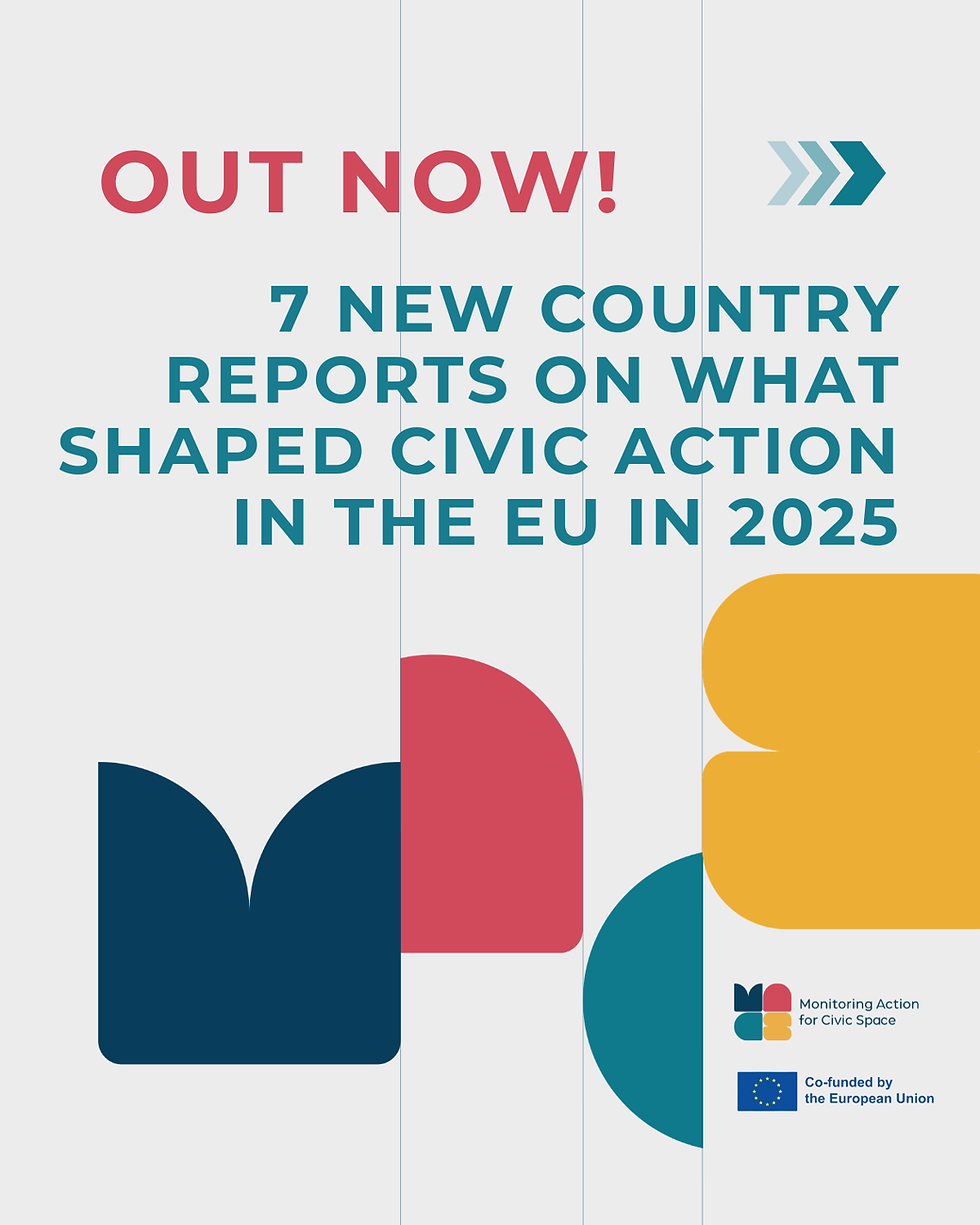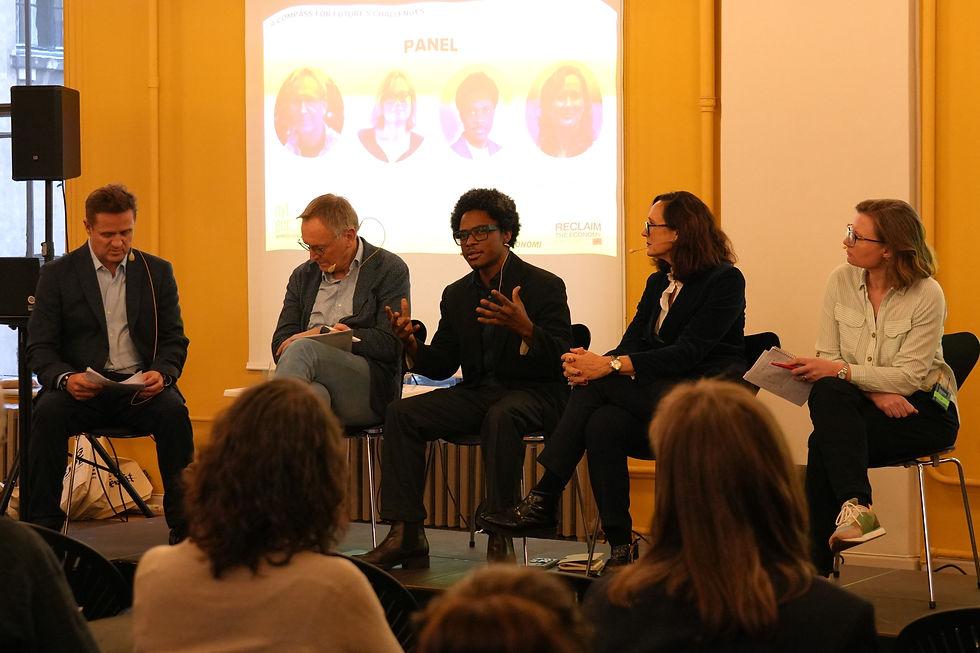Chapter 4: Recommendations for a stronger civil society in Europe
- 19. jan. 2022
- 5 min læsning
Recommendations
To summarize we have gathered some of the more central points from throughout the report and reformulated these into concrete recommendations. These recommendations aim to strengthen civic space and improve the conditions for democracy champions and civic engagement. The recommendations target a) political institutions, both national and on an EU-level b) civil society working to protect our fundamental rights in Europe.
1. Fundamental rights must feature more prominently in both EU-level and national policymaking We have showed how the absence of legal protections for minorities and at-risk groups, as well as government sponsored hostility to CSO’s, has contributed to more discrimination against these groups, particularly against people of LGBT+ and those with ethnic minority backgrounds. We need more robust protections on EU-level and also on a national level that help to protect societies’ most vulnerable groups. Doing so would not only give them better legal protections, but also allow for advocacy that can lead to long-term improvement.
2. National governments must not hinder the work of CSO’s working to protect and strengthen fundamental rights We have seen how civil society is prevented from providing services for at risk groups, or well-informed advocacy for a government, when there is a lack of government support for their work, or even politicized roadblocks that prevent civil society organizations for offering their services. Governments across the EU must not inhibit civil society through unnecessary or harmful policies that prevent them from functioning and providing essential services. Particularly legislation such as the lex-NGO law from Hungary that forces unnecessary financial requirements on civil society organizations must be avoided and discouraged.
3. There must be a reprioritization of budgets towards support for CSO’s throughout Europe For civil society to continue to play an important role we need the resources to provide support to society’s most vulnerable. Particularly the covid-19 crisis and the economic recession that has accompanied it, has meant that CSO’s are unable to access reliable funding or have been cut out of previous revenue streams. Funding sources for civil society could come from providing increased resources for programs such as the EU’s MFF, Rights and Values Program or the EU4Health Program. This also entail government critical organizations to ensure that the work of each CSO is free from political pressure.
4. EU institutions and civil society must take proactive steps to support the freedom rights in Europe The EU must play an increased role, by both calling out European states on illegal behavior, as well as initiating legal proceedings where fundamental rights and the rule of law in the EU are at risk. The EU Commission should not hesitate with bringing infringement proceedings where the treaties of the EU give it the authority to do so, as this has been proved as having a positive effect on preventing or delaying legislation and policies with malicious intent from within EU member states.
5. Political institutions and society in general must support mechanisms and procedures that will facilitate dialogue and communication with CSO’s It is not enough that civil society is allowed to exist in a society, they must also be given a platform from institutions to promote their specific cases. National institutions should introduce procedures akin to the European Semester from the EU. Here CSOs are given a direct link to legislators and can better lobby and bring their expertise on a given subject to bear. We should also seek to further citizen-driven, democratic initiatives that would allow for a more bottom-up approach to the input for legislation and allow for the public in general to feature more prominently in the democratic process.
6. There must be a reprioritization of budgets towards support for CSO’s throughout Europe For civil society to continue to play an important role we need the resources to provide support to society’s most vulnerable. Particularly the covid-19 crisis and the economic recession that has accompanied it, has meant that CSO’s are unable to access reliable funding or have been cut out of previous revenue streams. Funding sources for civil society could come from providing increased resources for programs such as the EU’s MFF, Rights and Values Program or the EU4Health Program. This also entail government critical organizations to ensure that the work of each CSO is free from political pressure.
7. Civic Education should feature more prominently, and civil society should take the lead Civil Society should be more proactive in educating the general population in how they can become active citizens. Democracy and the freedoms that it provides for goes deeper than free elections. Citizens should be involved in grass roots movements and raise awareness concerning their own personal roles in upholding their fundamental freedoms. Doing so will help to protect rights and the rule of law in respective European States. Further the concept on civic education can be strengthen by adopting best practices like the Folk High School concept that emphasize democratic values as a key part of the teaching.
8. Political institutions and society in general must support mechanisms and procedures that will facilitate dialogue and communication with CSO’s It is not enough that civil society is allowed to exist in a society, they must also be given a platform from institutions to promote their specific cases. National institutions should introduce procedures akin to the European Semester from the EU. Here CSOs are given a direct link to legislators and can better lobby and bring their expertise on a given subject to bear. We should also seek to further citizen-driven, democratic initiatives that would allow for a more bottom-up approach to the input for legislation and allow for the public in general to feature more prominently in the democratic process.
9. There must be a reprioritization of budgets towards support for CSO’s throughout Europe For civil society to continue to play an important role we need the resources to provide support to society’s most vulnerable. Particularly the covid-19 crisis and the economic recession that has accompanied it, has meant that CSO’s are unable to access reliable funding or have been cut out of previous revenue streams. Funding sources for civil society could come from providing increased resources for programs such as the EU’s MFF, Rights and Values Program or the EU4Health Program. This also entail government critical organizations to ensure that the work of each CSO is free from political pressure.
10. Civil society should strive to help establish a culture of democracy wherever they operate It is not enough for Civil Society to advocate for human rights and democratic norms, they must also seek to build the democratic cultural foundations in society that can support them. To this end Civil Society should push for the embracement of public discourse on political subjects through events and educational programs, that seek to emulate and promote democratic traditions such as debate and inclusivity. Especially the inclusion of youth groups in these events would allow for a sense of ownership in democratic countries and improve the public commitment to democratic values.




Kommentarer